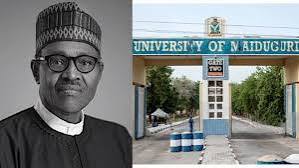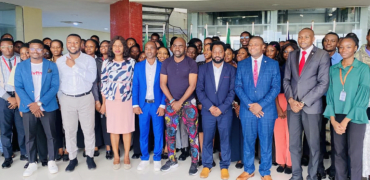ASUU Vows Legal Battle Over UNIMAID Renaming: "This Is a Violation of Our Identity"
ASUU Vows Legal Battle Over UNIMAID Renaming: "This Is a Violation of Our Identity"
The University of Maiduguri, a pillar of academic excellence in Nigeria’s northeast for over five decades, has become the epicenter of a national controversy after the Federal Government announced plans to rename the institution after former President Muhammadu Buhari.
But the move has ignited a fierce backlash from the University of Maiduguri’s Academic Staff Union of Universities (ASUU-UNIMAID), which has now declared its intention to drag the Federal Government to court. The union described the renaming as "a gross violation of university autonomy, an affront to academic heritage, and a decision cloaked in political overreach."
In a strongly worded statement issued on Friday, July 25, 2025, and jointly signed by its Chairperson, Dr. Abubakar Mshelia, and Assistant Secretary, Dr. Peter Teri, ASUU-UNIMAID made its position clear. The statement followed an emergency congress held on July 24, 2025, which brought together academic staff, student representatives, and concerned stakeholders in the university community.
"This University Has a Name — And It’s Not for Sale"
“Following extensive deliberations, the congress unanimously resolved to vehemently reject and strongly condemn the decision to rename the University of Maiduguri to Muhammadu Buhari University, Maiduguri,” the statement read.
To the union, the change is not just a symbolic gesture — it is a threat to the identity of a university that has stood for resilience, intellectualism, and cultural diversity, especially in a region that has endured years of insurgency and educational disruption.
“This institution was not built overnight. Its name carries the weight of history, struggle, and triumph over adversity. To discard it unilaterally without consultation is not only disrespectful — it is deeply insulting,” Dr. Mshelia said during the congress, drawing loud applause from the audience.
"A Politicization of Higher Education"
ASUU argued that the decision was made arbitrarily, without input from the university’s governing council, alumni association, student body, or local community leaders. It also accused the Federal Government of attempting to politicize higher education in Nigeria under the guise of honoring a former head of state.
“This renaming exercise is an example of executive fiat replacing inclusive governance. It’s a clear message that the people most affected by a decision — the staff, students, and alumni — don’t matter,” Dr. Teri added.
The union pointed to what it described as a pattern of “top-down, politically motivated decisions” that have increasingly undermined the independence of Nigerian universities.
Legal Redress and National Mobilization
Determined to protect the institution’s identity, ASUU-UNIMAID has now mandated its executive committee to pursue legal action. “The congress has empowered the union’s leadership to explore all available legal avenues to challenge this decision in court,” the statement noted.
The union also called on ASUU chapters across the country, as well as civil society organisations, student bodies, and the National Assembly, to resist what it termed a “legislative ambush” to rubber-stamp the name change.
“The autonomy and integrity of Nigerian universities must be preserved against political intrusion,” the statement concluded. “We are not against honoring past leaders, but not at the expense of our identity and without following due process.”
A Divided Legacy
While some political figures have hailed the renaming as a deserved tribute to Buhari, citing his impact on security and infrastructure in the northeast, critics argue that legacy must be earned through consensus, not decree.
As the legal showdown looms, many in Maiduguri and beyond are watching closely. For the university community, this fight is about more than a name — it's about legacy, identity, and the right to be heard.
And for ASUU-UNIMAID, the message is clear: “We will not allow history to be rewritten without our consent.”
By Haruna Yakubu Haruna


















